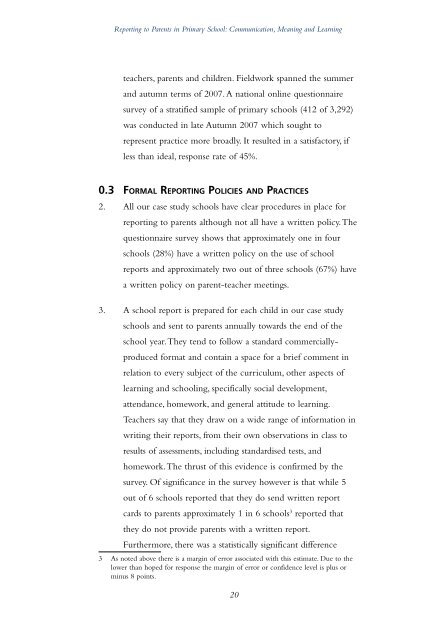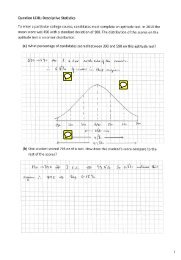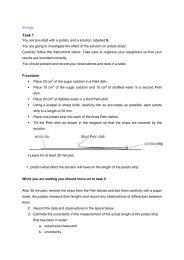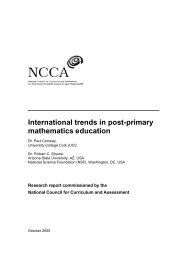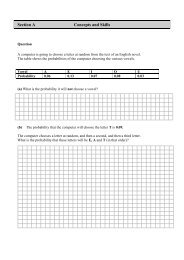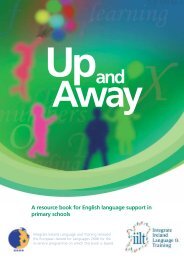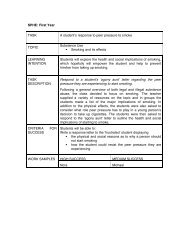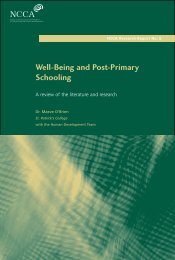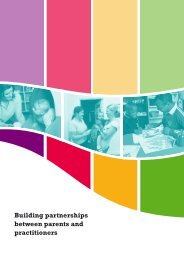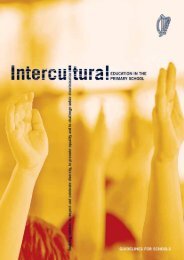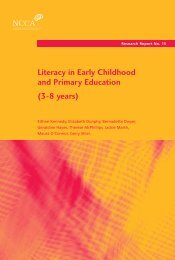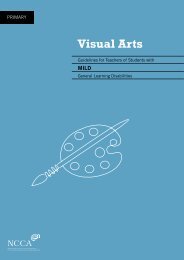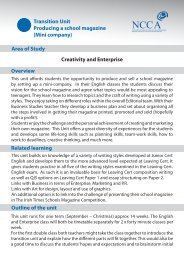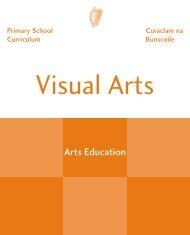Reporting to Parents in Primary School: Communication, Meaning ...
Reporting to Parents in Primary School: Communication, Meaning ...
Reporting to Parents in Primary School: Communication, Meaning ...
You also want an ePaper? Increase the reach of your titles
YUMPU automatically turns print PDFs into web optimized ePapers that Google loves.
<strong>Report<strong>in</strong>g</strong> <strong>to</strong> <strong>Parents</strong> <strong>in</strong> <strong>Primary</strong> <strong>School</strong>: <strong>Communication</strong>, Mean<strong>in</strong>g and Learn<strong>in</strong>g<br />
teachers, parents and children. Fieldwork spanned the summer<br />
and autumn terms of 2007. A national onl<strong>in</strong>e questionnaire<br />
survey of a stratified sample of primary schools (412 of 3,292)<br />
was conducted <strong>in</strong> late Autumn 2007 which sought <strong>to</strong><br />
represent practice more broadly. It resulted <strong>in</strong> a satisfac<strong>to</strong>ry, if<br />
less than ideal, response rate of 45%.<br />
0.3 Formal rEport<strong>in</strong>g policiES and practicES<br />
2. All our case study schools have clear procedures <strong>in</strong> place for<br />
report<strong>in</strong>g <strong>to</strong> parents although not all have a written policy. The<br />
questionnaire survey shows that approximately one <strong>in</strong> four<br />
schools (28%) have a written policy on the use of school<br />
reports and approximately two out of three schools (67%) have<br />
a written policy on parent-teacher meet<strong>in</strong>gs.<br />
3. A school report is prepared for each child <strong>in</strong> our case study<br />
schools and sent <strong>to</strong> parents annually <strong>to</strong>wards the end of the<br />
school year. They tend <strong>to</strong> follow a standard commerciallyproduced<br />
format and conta<strong>in</strong> a space for a brief comment <strong>in</strong><br />
relation <strong>to</strong> every subject of the curriculum, other aspects of<br />
learn<strong>in</strong>g and school<strong>in</strong>g, specifically social development,<br />
attendance, homework, and general attitude <strong>to</strong> learn<strong>in</strong>g.<br />
Teachers say that they draw on a wide range of <strong>in</strong>formation <strong>in</strong><br />
writ<strong>in</strong>g their reports, from their own observations <strong>in</strong> class <strong>to</strong><br />
results of assessments, <strong>in</strong>clud<strong>in</strong>g standardised tests, and<br />
homework. The thrust of this evidence is confirmed by the<br />
survey. Of significance <strong>in</strong> the survey however is that while 5<br />
out of 6 schools reported that they do send written report<br />
cards <strong>to</strong> parents approximately 1 <strong>in</strong> 6 schools3 reported that<br />
they do not provide parents with a written report.<br />
Furthermore, there was a statistically significant difference<br />
3 As noted above there is a marg<strong>in</strong> of error associated with this estimate. Due <strong>to</strong> the<br />
lower than hoped for response the marg<strong>in</strong> of error or confidence level is plus or<br />
m<strong>in</strong>us 8 po<strong>in</strong>ts.<br />
20


